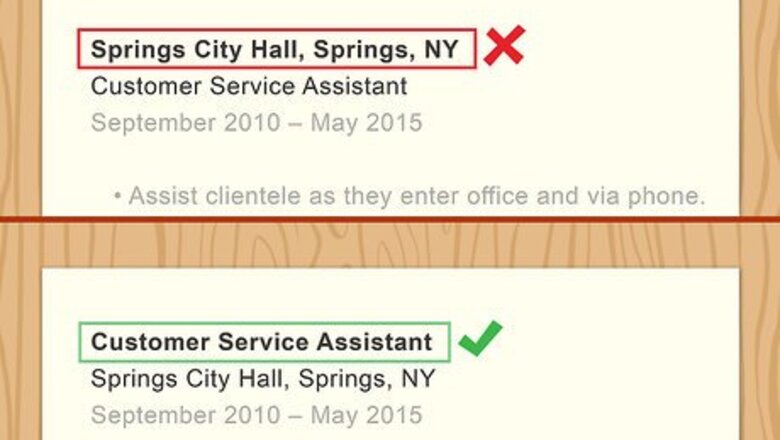
views
- Write each major skill, like managing customer complaints, as its own subheading.
- Use bullet points to write more specific skills, like placating customers, under the subheadings.
- Make a work history section that details the skills you used in each position.
Creating a Skills-Based Resume
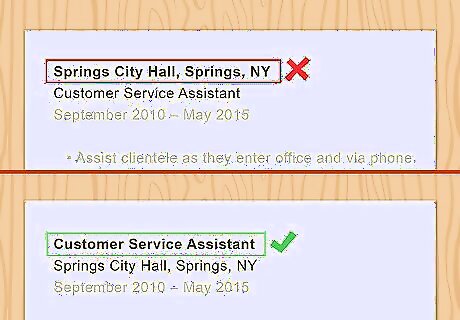
Emphasize your skills. When you're including customer service on your resume, it can come across better if you put the emphasis on the skills itself, not the job you gained it from. For instance, if you organize by jobs, putting "Burgers R Us" at the front of the line can be off-putting if you're applying for a job in finance. However, if you list "5 years of customer service experience" at the head of the line, that will catch your potential employer's attention.
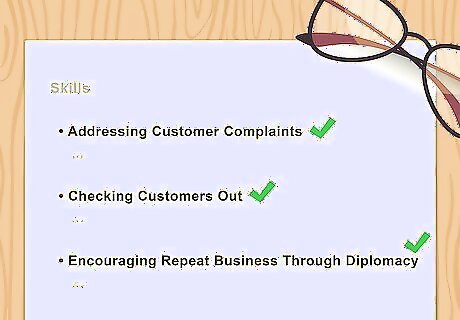
Place each skill as a sub-heading on your resume. Start by listing your main skills as sub-headings on your resume under a "Skills" section, including each of your customer service skills. Highlight the areas you have the most experience in by putting them first. For instance, you could add skills such as "Addressing Customer Complaints," "Checking Customers Out," and "Encouraging Repeat Business Through Diplomacy."
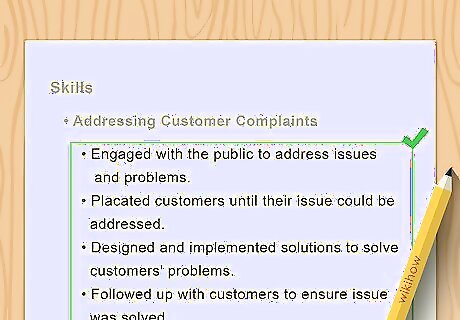
Create bullet points for the customer-service skills you developed. Your bullet points should provide a description of your experience level with each skill you name. Try using bullet points below the subheading for each skill to expand on how you gained that skill, like the following example: Addressing Customer Complaints Engaged with the public to address issues and problems. Placated customers until their issue could be addressed. Designed and implemented solutions to solve customers' problems. Followed up with customers to ensure issue was solved. Pay attention to your target audience. For instance, if you're trying to move from sales or a burger job to a library job, replace "customer" with "patron" or "users."
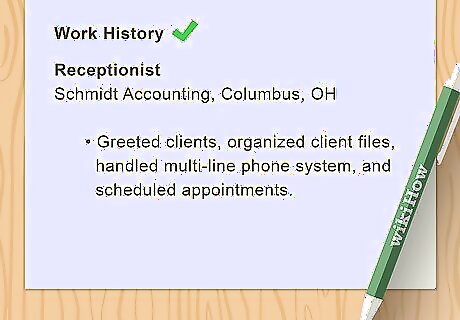
Add a work history section after your skills section. While you don't want to include an extensive work history on a skills-based resume, you should include a small work history. Don't use descriptions in this area. Rather, just include your job title, company, dates of employment, and the city and state.
Targeting Your Resume to Your Desired Position
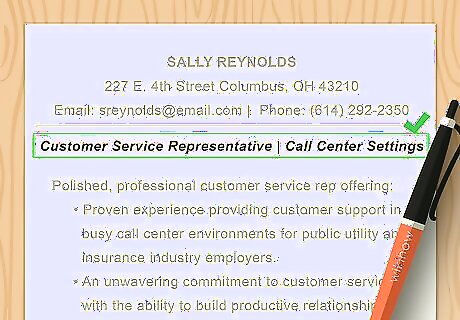
Pick a job or specific position to focus on. To effectively include customer service experience on your resume, you need to be able to customize your resume to a particular job. That way, you can show exactly what relevant experience you have and how it's relevant. Start out by figuring out which position you're applying for or at the very least, the type of job you're trying to obtain. Keep in mind that you'll need to create multiple resumes, likely 1 for each position you want to apply for.
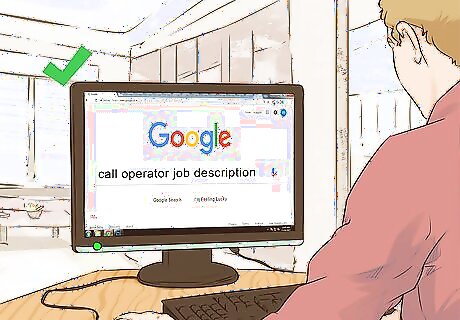
Research the job or position. If you're not sure what customer service skills a particular job will require, you need to research the position. You can either research the field itself, or look at a specific job posting to see what a company is looking for. Make a list of needed skills. For instance, if you're trying to land a job as a call operator, you'll likely need skills like "Addressing Customer Complaints," "Encouraging Good Customer Relations by Remaining Calm and Polite," and "Good Listening Skills."
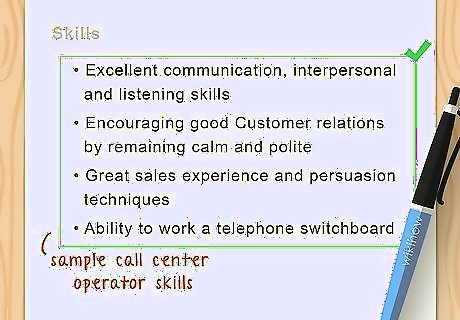
Narrow your customer-service skills based on that position. When you customize your resume, emphasize the skills needed for the position you're applying for. For instance, if you're applying for a job as call center operator, emphasize the fact that you dealt with customer complaints daily in your last position.
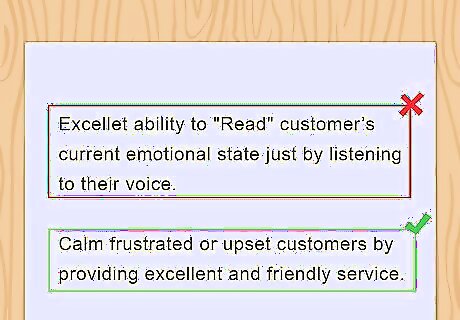
Keep your resume honest. You'll of course play up certain skills to convince an employer that you're the right person for the job. It's perfectly fine, and it's something most candidates do. However, you shouldn't be dishonest your skill set. Don't say you are experienced in an area where you're not. You'll likely be caught, and it could cost you the position.



















Comments
0 comment